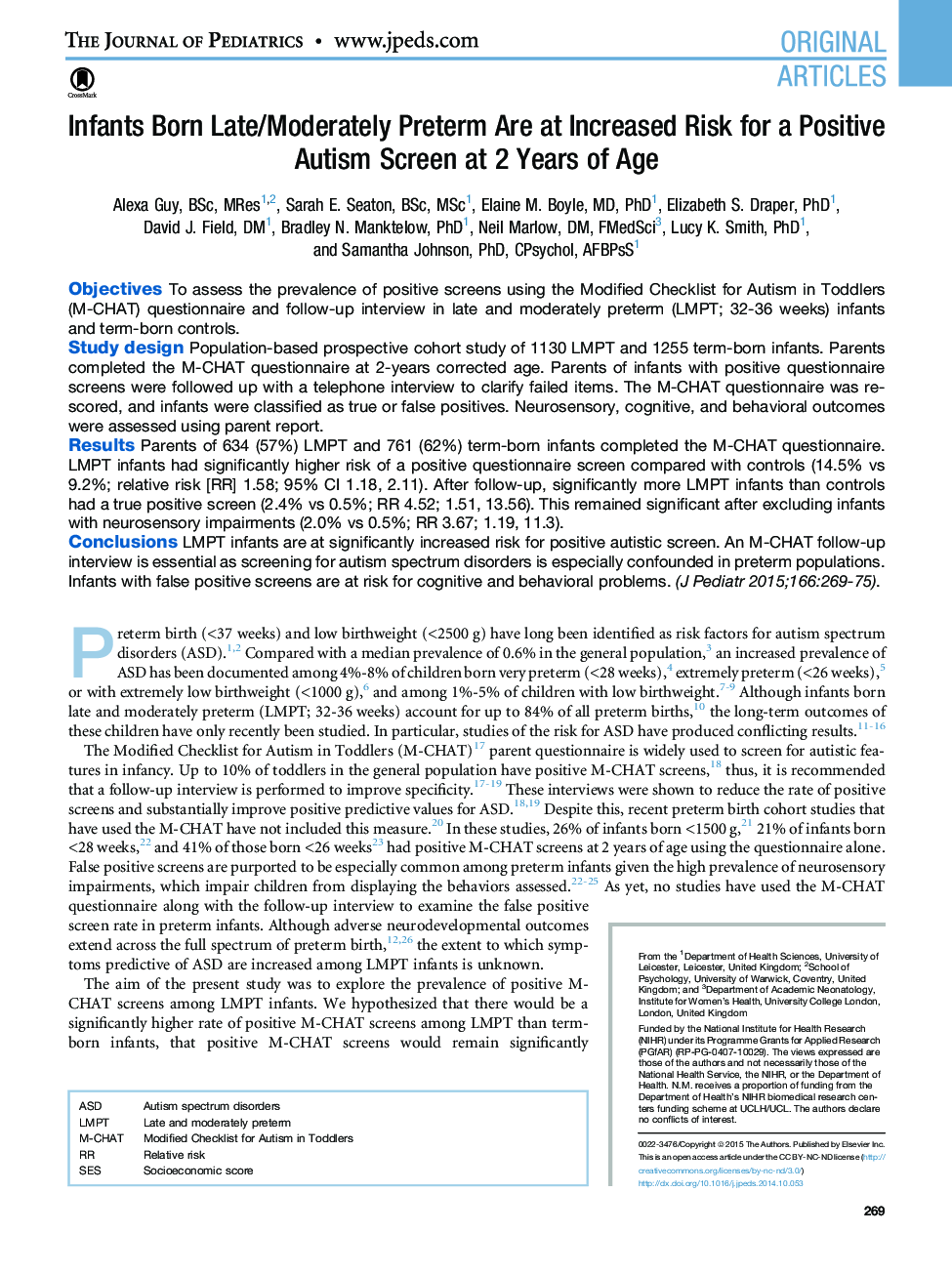| Article ID | Journal | Published Year | Pages | File Type |
|---|---|---|---|---|
| 6221665 | The Journal of Pediatrics | 2015 | 10 Pages |
ObjectivesTo assess the prevalence of positive screens using the Modified Checklist for Autism in Toddlers (M-CHAT) questionnaire and follow-up interview in late and moderately preterm (LMPT; 32-36Â weeks) infants and term-born controls.Study designPopulation-based prospective cohort study of 1130 LMPT and 1255 term-born infants. Parents completed the M-CHAT questionnaire at 2-years corrected age. Parents of infants with positive questionnaire screens were followed up with a telephone interview to clarify failed items. The M-CHAT questionnaire was re-scored, and infants were classified as true or false positives. Neurosensory, cognitive, and behavioral outcomes were assessed using parent report.ResultsParents of 634 (57%) LMPT and 761 (62%) term-born infants completed the M-CHAT questionnaire. LMPT infants had significantly higher risk of a positive questionnaire screen compared with controls (14.5% vs 9.2%; relative risk [RR] 1.58; 95% CI 1.18, 2.11). After follow-up, significantly more LMPT infants than controls had a true positive screen (2.4% vs 0.5%; RR 4.52; 1.51, 13.56). This remained significant after excluding infants with neurosensory impairments (2.0% vs 0.5%; RR 3.67; 1.19, 11.3).ConclusionsLMPT infants are at significantly increased risk for positive autistic screen. An M-CHAT follow-up interview is essential as screening for autism spectrum disorders is especially confounded in preterm populations. Infants with false positive screens are at risk for cognitive and behavioral problems.
